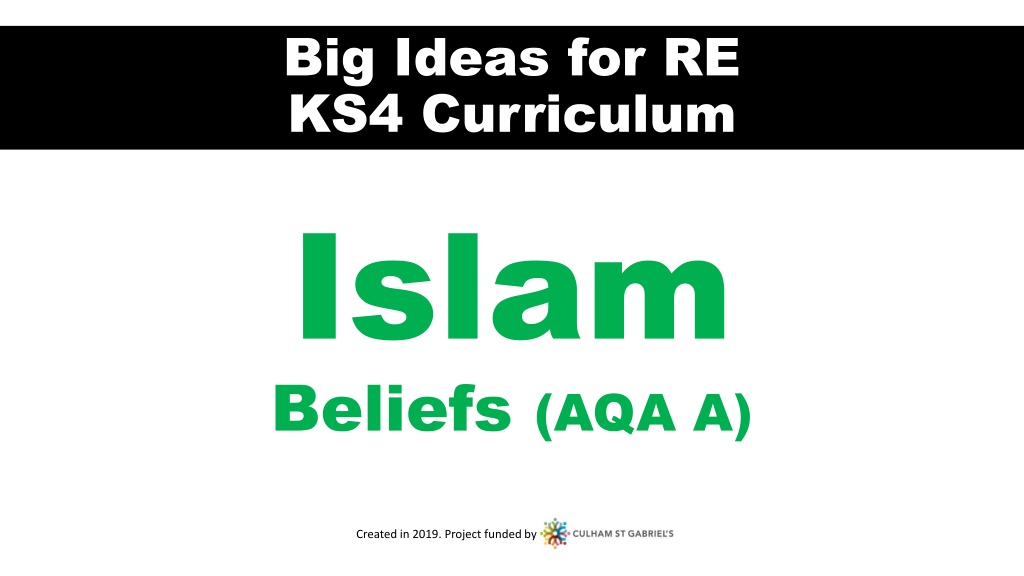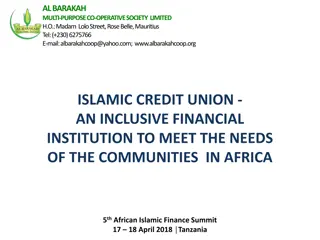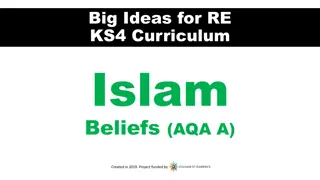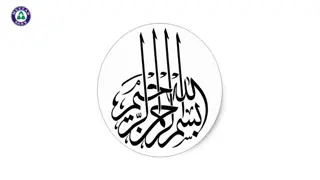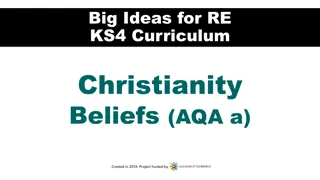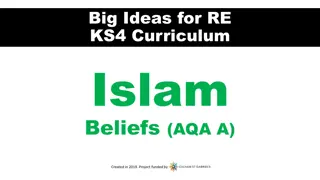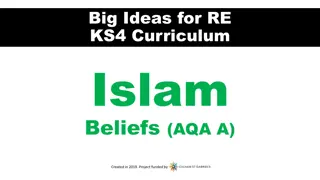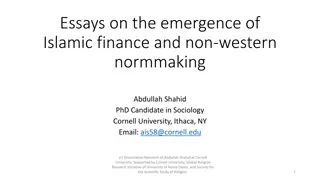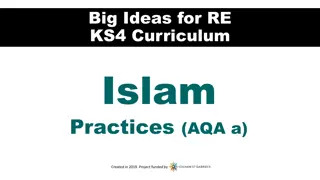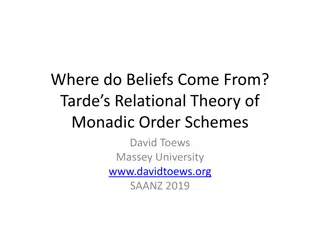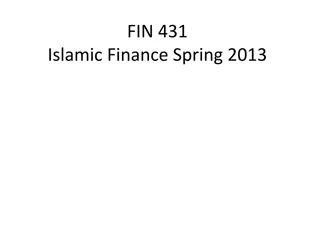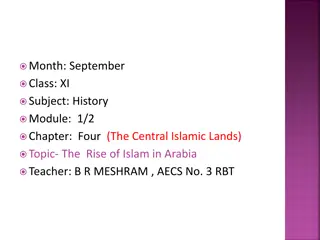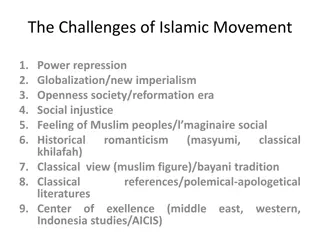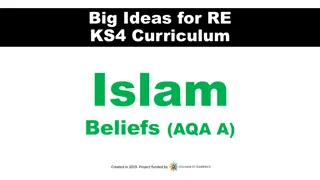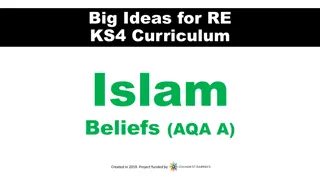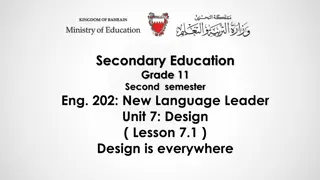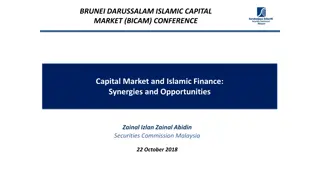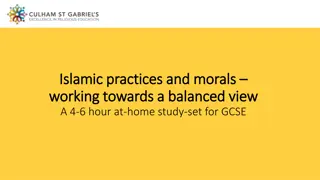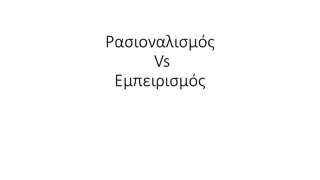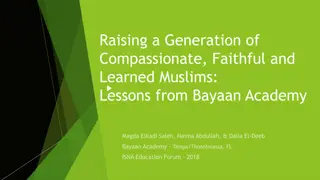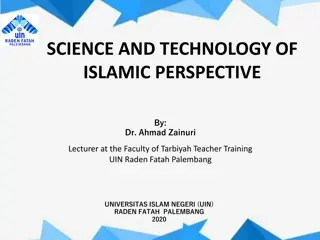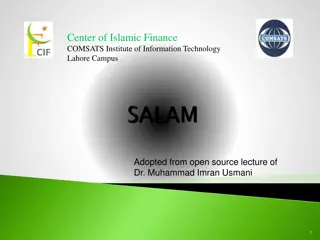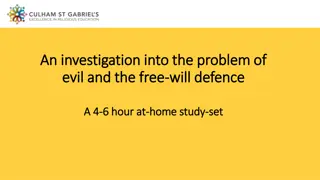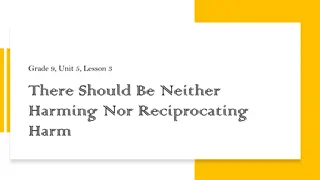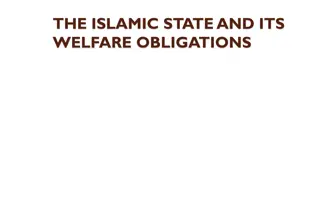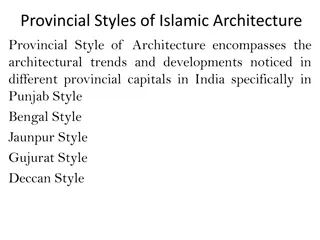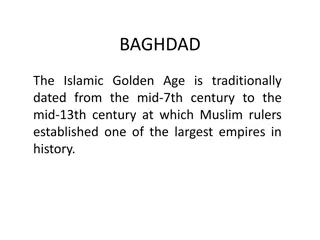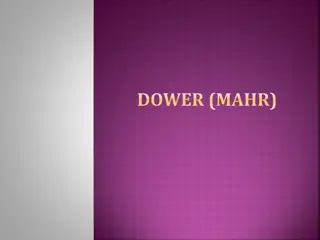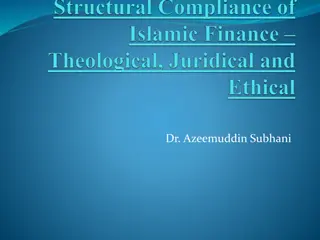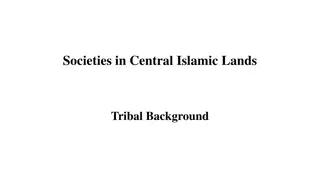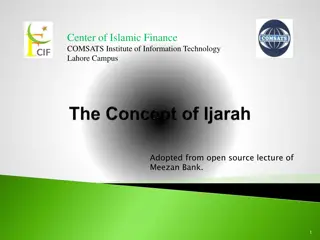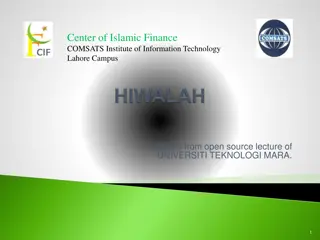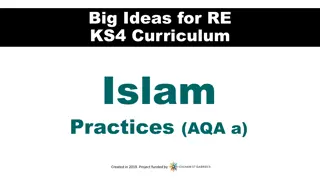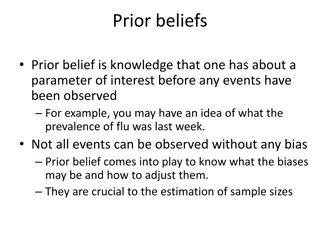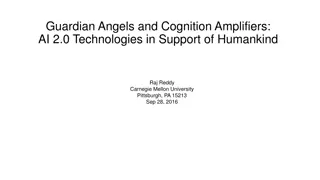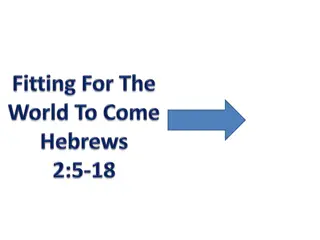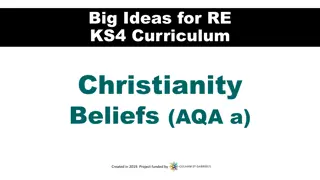Exploring Islamic Beliefs on Angels and Free Will Through a Philosophical Question
Dive into the realm of Islamic beliefs surrounding angels and free will by analyzing the nature and role of angels in comparison to humans and prophets. Engage in thought-provoking discussions on the purpose of angels, the significance of free will, and whether God should have stopped at creating angels. Explore these concepts through a captivating narrative involving Marla and the crocodile in a thought experiment that challenges ideas of fate, destiny, and human agency.
Download Presentation

Please find below an Image/Link to download the presentation.
The content on the website is provided AS IS for your information and personal use only. It may not be sold, licensed, or shared on other websites without obtaining consent from the author. Download presentation by click this link. If you encounter any issues during the download, it is possible that the publisher has removed the file from their server.
E N D
Presentation Transcript
Big Ideas for RE KS4 Curriculum Islam Beliefs (AQA A) Created in 2019. Project funded by
6: 6: Should God have stopped at Should God have stopped at angels? angels? From the spec The holy books: Angels, their nature and role, including Jibril and Mika il. BIG IDEAS LEARNING BELIEFS: about nature of angels PHILOSOPHY: purpose of angels, significance of free will Learning outcomes: Nature and role of angels in Islam How angels differ from humans Consider purpose of angels
Lesson 6 Set the scene to raise a philosophical question about free will; read Marla and the crocodile (next slide). Make a class list of all the things that have led to Marla s predicament. Discuss: is Marla to blame? Ask: why is Marla able to end up in this situation? (she has free will). Teach that in Islam humans have free will, but angelic beings do not. Describe angels (teacher notes on subsequent slide). Students sketch as you talk. Identify what sort of knowledge this is (mythical). Create a table 1. Humans Angels 2. Prophets Angels 3. Prophets Ordinary humans Give groups/ pairs 30 seconds to jot down (1) how humans and angels are seen in Islam. Share main differences. Repeat for (2) prophets and angels, and (3) prophets and ordinary humans. Discuss differences. Create class notes, especially answers relating to Jibril and Mika il. Return to initial sketch of angels- give groups/ pairs two minutes to re-write the story of Marla and the crocodile with an angel in place of Marla. Can students connect any Islamic theology with elements of the story: Marla, Marla s father, swimming lessons, crocodiles, floods, etc? Would the world and God s life be a lot easier if humans with free will had not been created? Set the question: should God have stopped at angels? Give time to discuss. Share answers. Each group should offer a reasoned answer.
Do now: Do now: Do you believe in fate and destiny? Do you believe in free will? Destiny = Belief that events are meant to happen, or have been decided in advance Free Will = View that humans are free to make their own choices and the future is not written
We task : Marla and the Crocodile (loosely adapted from an idea by Chris Hewer, chrishewer.org) Marla lives in India. Her village lies next to a fast-moving river. Sometimes the villagers call it Mother River because it sustains life. They fish in the river, sell the fish at market, and travel up and down the river in small boats to trade. Sometimes the villagers call it angry river because it also brings dangers; floods destroy houses, waves sweep people off banks and rafts and crocodiles and snakes live in the water. The children learn to respect Mother River from an early age. They learn to swim and sail, to avoid certain rocks and waterfalls and spot signs of predators, both for themselves and others. Marla s parents take their responsibilities very seriously. They have made sure all their children can swim, manage themselves and know the dangers. One night Marla steals her father s raft and takes it up the river. She wants to find turtles that her friend says live in a quiet pool and come out at night. She drifts towards the pool, but as she approaches a sudden wave overturns her raft. She starts to swim to shore but suddenly freezes. A huge crocodile, as still as a log, has been watching her. Slowly, lazily, it turns towards her and begins to paddle, its yellow eyes gleaming on the surface 1) Make a list of all the tings that have lead to Marla s predicament. 2) Think, pair, share: Is Marla to blame?
Listen carefully as your Listen carefully as your teacher reads the description teacher reads the description of angels in Islamic belief of angels in Islamic belief As you listen: - sketch what you hear, - create symbols to represent what you hear OR make notes to summarise what you hear Photo by Umberto on Unsplash
ANGEL ROLE Angels in Islam TEACHER NOTES- In Islam humans have freewill but angels do not Angels are mentioned more than a hundred times in the Qur an. God created angels before human beings. Angels are made out of light. They are described as beautiful, neither male or female, possessing two, three or four pairs of wings (Qur an 35:1) and bodies which can assume many forms. They do not need food, shelter or rest, they do not reproduce or have sex. They worship and obey God and perform specific roles for God (see table). Angels cannot disobey God, they do not have free will. They have powers to carry out their roles, but do not make mistakes and always carry out God s wishes. What sort of Knowledge is this? mythical. Brings word of God to the prophets Qur an 2:97, 16:102 Jibril Angel of death Qur an 32:11 Izra il Nourishes bodies and souls if the living, oversees the seasons. Mika il Blows trumpet at end of days, and again at Judgment Israfil Al-Kiran Al-Katibun ( honourable scribes ) Two angels record good and bad actions in a book, the basis of judgment. Qur an 54:53, 39:69.
ANGEL ROLE Qur an 2:97, 16:102 Jibril Qur an 32:11 In groups research the Angel you have been allocated and present back to the class. Izra il Nourishes bodies and souls if the living, oversees the seasons. Mika il Quran, 39.68. Israfil Al-Kiran Al-Katibun ( honourable scribes ) Qur an 54:53, 39:69.
1. Humans Angels 2. Prophets Angels 3. Prophets Ordinary humans Groups/ pairs jot down 1) How humans and angels are seen in Islam 2) How prophets and angels are seen in Islam 3) How prophets and ordinary Humans are seen in Islam. Create class notes, especially relating to Jibril and Mika il
Think back to the story of Marla and the crocodile . Rewrite the story of Marla and the crocodile with an angel in the place of Marla. What Islamic theology can you link to elements of the story ? think about: - Marla - Marla s father - Swimming lessons - Crocodiles - Floods etc. Would the world and God s life be a lot easier if humans with free will had not been created?
Group discussion should God have stopped at angels ? Each group will need to prepare their argument with a well reasoned answer. Be prepared to defend your position.
Exit ticket : What are Angels like in Islam? How angels differ from humans? What do Jibril and Mika il do in Islam?
